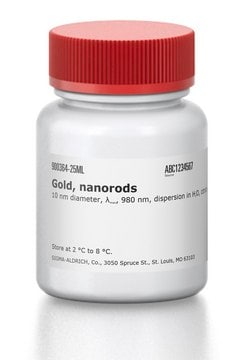911860
NanoFabTx™ microfluidic - micro
device kit for synthesis of 1-5 μm particles
Sinónimos:
Microfluidic kit, Microparticle, NanoFabTx™ device kit, Nanoformulation
About This Item
Productos recomendados
description
Microfludic device kit for synthesizing 1-5 μm microparticles
Kit components :
Quality Level
application(s)
advanced drug delivery
¿Está buscando productos similares? Visita Guía de comparación de productos
Categorías relacionadas
General description
Application
Features and Benefits
- Step-by-step microfluidic-based protocols developed and tested by our formulation scientists
- Optimized to make monodisperse microparticles of any size between 1 and 5 μm
- Facilitates simple optimization of drug encapsulation and loading efficiency in microparticles
Legal Information
related product
Certificados de análisis (COA)
Busque Certificados de análisis (COA) introduciendo el número de lote del producto. Los números de lote se encuentran en la etiqueta del producto después de las palabras «Lot» o «Batch»
¿Ya tiene este producto?
Encuentre la documentación para los productos que ha comprado recientemente en la Biblioteca de documentos.
Artículos
NanoFabTX kits enable precise drug delivery with lipid nanoparticles and liposomes for mRNA and nucleic acids.
NanoFabTx™ platform accelerates drug development with ready-to-use formulations and microfluidic devices for particle synthesis.
Professor Robert K. Prud’homme introduces flash nanoprecipitation (FNP) for nanoparticle fabrication, which is a scalable, rapid mixing process for nanoparticle formulations.
Microfluidic assembly improves polyamine nanoencapsulation of nucleic acids, overcoming challenges like polydispersity and poor reproducibility.
Nuestro equipo de científicos tiene experiencia en todas las áreas de investigación: Ciencias de la vida, Ciencia de los materiales, Síntesis química, Cromatografía, Analítica y muchas otras.
Póngase en contacto con el Servicio técnico




